
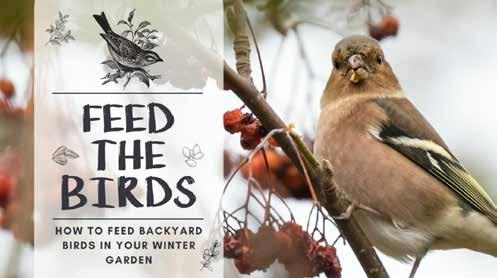
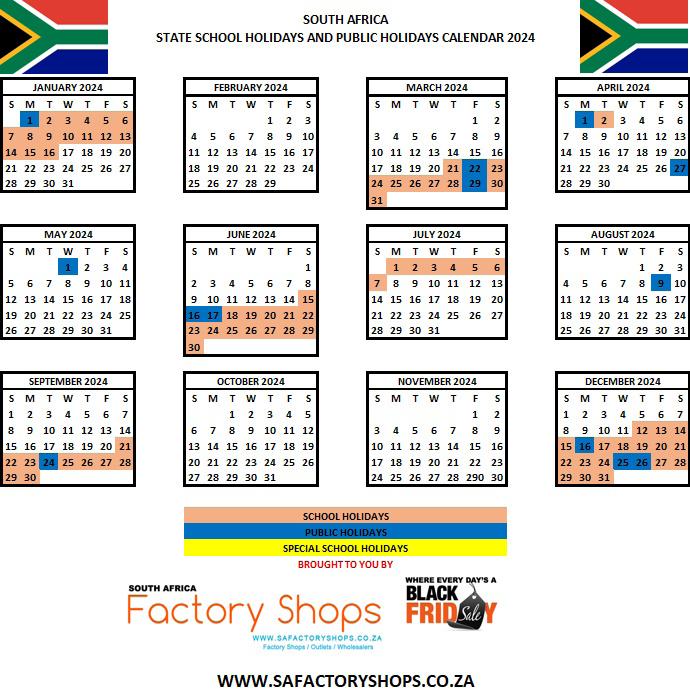



















This edition is different.
We are receiving a lot of articles from different sources. All of them are really relevant and providing great insight into a range of topics.
It is not always we can utilise all of it, which is really a shame as it is good information.
This time we have done it!
This edition is where we have taken the plunge and used a majority of the info.
Bellville arts: Nadia Hearn, 4IR skills: Khanya Nobangule, Allan Gray Orbis Foundation: Datatec:/Transform: Daniel Cape Tourism: Teagan Acer and InnovateEDU: The missing piece: Khanya Rhodes Bioinformatics: NSTF Stemulator: NSTF
We are ever so thankful and all these relevant articles.
We have the ‘usual’ as national, music and so
It is nearly impossible to cite all the sources, but let me take the chance of doing so here: Hola is here to give you a break from all We are also serious, but it is now called
Enjoy a different ‘Hola’
Good read!
Hearn, Get-published Nobangule, Evolution PR Foundation: Tasneem du Toit Felix
Daniel Roos/Natascha Conradie Stoltz, Accenture
InnovateEDU: Talitha Utton, Innocomm
Khanya Nobangule, Evolution PR Christelle du Toit Rhodes
NSTF Media thankful for receiving the information articles.
well: career (cabin crew), interon. this time.

all the school stuff. called edutainment.
Sybil Otterstrom Editor and CEO

Want to be a contributor? Wanting to write like a pro?
You CAN!
look firther and see how you can become one.
... and it is a good feeling to entertain and inform.
Masiziba Hadebe is doing her Master’s in Agricultural Economics at the University of the Free State (UFS). She is driven to make a change and is a passionate volunteer for community projects. She loves reading and writing about science, agriculture and anything in between. She believes you can wear a smile whatever the weather!
My name is Lerato Pitso. I am from Maseru, Lesotho. I am a Sociology and Criminology student at UFS and Miss Supranational Lesotho 2023. When I’m not a model and a student, I write about my philosophies on life as well as expressing my feelings on paper. I hope that my views will aid in the social development of the next person.

And we are honoured to also have industry-views from:
Edith Wynne-Trollip: - Curriculum Support and advise, Overberg District
Nadia Hearn - Founder of Get-Published
Ashalia Maharajh: - Founder & Director, Sivuka Consulting (Pty) Ltd
Thozamile Mvumvu: - CFE Programme Manager, False Bay TVET
Daniel Roos - Account Executive, Transform Marketing



Artvilla Dakamela, 22, another wizard from the literature world, he is an Accounting student at the University of the Free State. He has written for the Initiative for Creative African Narratives (iCAN) amongst others. He currently resides in DurbanKZN - and is a very enthusiastic reader and writer.
My name is Molatelo Kate Kgatla, I’m 24 years old. I was born and raised in Lenyenye. I’m a grade 2 teacher at Vunza Teddy Bear Learning Academy, an author of a book titled her jouney as a young mother. I became a mother at 17. It influenced me to write about my personal journey to try and help someone that could be going through the same. I love writing and I love my 7 year old daughter and life.


Lesly Malose Mahapa is a singer/writer/poet. He started writing at the age of 14 and has since been on a journey to pursue his music and writing career. Lesly is currently working with an indie group ‘MozSouth’ based in Ivory park, Midrand. Lesly is also a brand ambassador for a local clothing line “Boi Boi apparel”

Editor
Sybil Otterstrom
sybil@romele.co.za
Advertising sales
Next
011 614 5046
076 360 1792
sybil@next-level.co.za
Publishing
Eleanor street
2094 011 614 5046/076 360 1792
Enquiries
Romele



We have skipped all the winter ‘stuff’ this time. No need to dwell on it. We are all looking forward to spring.
As a recognised publication we are getting sent a range of articles from different companies and PR agencies.
You may have seen some of these from time to time.
A more thorough examination shows us the strenght and value of the best part of these. They are typically GREAT and very relevant.
This edition has a fair portion of these articles, and it is our aim to utilise much more of all the quality material we are getting.
If interested, try to look at the authors of the articles and the people quoted in these. They are all significant people in this world and their opinions are worth listening to.
One particular article is worth mentioning here: the Stemulator from NSTF. This is something that can immediately be used by all and the amount of information contained is amazing. Try asking your school for incorporating this in the general learning.
Until next time!

Opinion piece by By Leigh-Ann Revill, CEO and Principal at Chartall Business College.
The Fourth Industrial Revolution (4IR) is changing the way we work by introducing new technologies that automate routine tasks. This has many benefits, including enabling workers to focus on more complex and creative work, and providing new opportunities for remote work, training, and collaboration. In labour-intensive and potentially hazardous industries like manufacturing and mining, 4IR can increase productivity, reduce incidents of injury, and improve long-term worker well-being.

Technological advancements make people think that we will replace people with robots, however, the reality is that, the need for people does not disappear – but the skills required will inevitably shift and change. We need to make sure our people have the skills they need to take advantage of new opportunities as the journey through the industrial revolutions continues.
Automation potential driven by 4IR will enable a shift in jobs for human workers from lower to middle tiers. Jobs that can be automated could mean that some employees will lose their jobs, however, with most changes come new opportunities. South African businesses cannot shy away from adopting 4IR technologies out of fear of increasing unemploy-

ment, because the shift toward digital and automation is rapidly becoming essential for future competitiveness.
If we do not adapt and adopt, then we will fall further behind on a global scale, which will have detrimental long-term economic effects.
Conversely, if we embrace 4IR, we will be able to leverage technologies such as automation, Artificial Intelligence (AI), and the Internet of Things (IoT) to significantly increase productivity and efficiency, to reduce costs, and improve profits. Decision-making abilities can be enhanced through the use of data-driven insights to create better products and services.
As automation increasingly replaces mundane, repetitive, and lowskill jobs, we need to ensure that we have pipelines and processes in place to nurture and grow the skills we will need to embrace the future. Some of the core skills required to build the engine behind a 4IR South Africa are software engineers, software developers, dev-ops, AI, and machine learning specialists as well as data scientists.

These skills need to be embedded from a primary school level with the introduction of basic coding and robotics skills at schools, which can be further developed through high school and tertiary institutions. This will ensure a sustainable skills pool for the future.

Other skills include those that have been traditionally termed “softskills” but are becoming increasingly “critical-skills”, such as adaptability, coping with change and emotional intelligence. These inter-personal and self-regulation skills create resilient and flexible employees who can adapt in the ever-changing global world.
It is important to upskill and cross-skill our existing workforce to close the skills gaps that are beginning to emerge in the short term. The skills space is an extensive ecosystem, where not only are high-level skills vital, but several mid-level roles are being created, in which lower-level workers can be upskilled and cross-skilled to perform, ensuring that 4IR does not create massive unemployment.
The skills gap around high-level technology skills is a significant problem in South Africa, but it is not the only challenge we face. It is just as important to ensure that lower-level workers can continue to participate in the economy.

Training and education programmes are vital, including on-the-job training in new technologies and processes, vocational training to help low-skilled workers acquire new skills in areas such as cybersecurity, data analysis, and digital marketing,

online courses, learnerships, apprenticeships and mentoring programmes.
This can also be augmented by government-sponsored training and education programmes or public-private partnerships to upskill our labour force for 4IR.
A turnkey employment service provider can be an invaluable asset, helping businesses to identify where training and skilling are needed and facilitate this training, offering workshops, seminars, and career counselling to help individuals stay up to date with the latest skills requirements.
They can also help individuals find job opportunities by connecting them with employers who are looking for workers with the right skills and experience and provide post-employment support including mentoring, coaching, and additional training to help individuals advance in their careers.
Partnering with a turnkey employment services provider can help businesses to fill in the gaps and gear themselves toward the adoption of 4IR.

The fourth-industrial revolution is a natural progression of our advancements as humans. The fifth-industrial revolution is also already on our doorstep and it’s time we start focusing on skill sets that promote agility, job-flexibility and innovation. Let’s embrace the opportunity for personal, professional, and organisational growth.

The Department of Tourism recently highlighted how crucial the tourism sector is for job creation and expects it to create over 800,000 jobs over the next decade.

To help South Africa realise these projections, Cape Town Tourism (CTT), the official Destination Marketing Organisation (DMO) for the City of Cape Town, has launched the Future Tourism Leaders initiative to equip young people with future tourism skills and enhance their employability.
Lisa-Ann Hosking, Chief Destination Officer at Cape Town Tourism, says South Africa’s tourism sector continues to recover from the pandemic’s impact, with the 2024 Travel and Tourism Development Index recording 6.4 million visitors to South Africa in Q1 of 2024.
“The latest South African tourism figures highlight the sector’s potential to drive economic growth and create meaningful employment and entrepreneurial opportunities for our youth. Our Future

Tourism Leaders initiative aims to help South Africa achieve all these goals by fostering the next generation of tourism professionals.
We reach out to schools annually, prioritising those in underprivileged communities that wouldn’t ordinarily have access to such initiatives to ensure equal opportunity.”

Addressing SA’s critical skills gap Cape Town Tourism foresees that the future tourism sector will require youth to possess practical knowledge of various tourism-related careers and entrepreneurial practices. It says they’ll also need an in-depth understanding of business management, marketing strategies, and customer engagement.
In collaboration with the Western Cape Education Department (WCED), Tourism Subject Advisors and industry leaders, the programme ensures its content is relevant and beneficial. The Tourism Subject Advisors help tailor the workshops at the start of each year, addressing academic requirements and practical industry needs.
Hosking adds, “Future tourism leaders’ ability to innovate and create unique experiences, coupled with a deep sense of city pride and community involvement, will be crucial. So, this initiative strives to instil these competencies through interactive workshops, direct industry engagement, and hands-on learning experiences, ensuring they are well-prepared for the evolving tourism landscape.”
Cape Town Tourism’s Future Tourism Leaders programme equips young people with these essential skills through two targeted interventions:


The Future Leaders Workshops provide youth with first-hand tourism experience by connecting them with professionals and raising awareness about career opportunities within the sector. Cape Town Tourism partners with local high schools that offer tourism as a subject to host informative sessions for learners with a panel of industry stakeholders, including tour operators, transport providers, accommodation, and attractions.

“We focus on developing a positive mindset and an awareness of the opportunities in tourism,” says Hosking. “Our expert panellists highlight crucial attitudes and values such as flexibility, proactive communication, curiosity, problem-solving, and networking. These are the foundations for success in the industry.”
One of the key learnings from the first 2021 workshop is that most learners aren’t exposed to tourism activities. To address this, the workshops incorporate interactive quizzes that give away tourism experienc-

es to learners, like an overnight hotel stay, shark cage diving, visiting Table Mountain or a City Sightseeing bus tour.
So far, the workshops have reached over 300 learners, and the Cape Town Tourism team have introduced 500 youth job seekers to tourism products actively seeking hires.
With continued support from the community and stakeholders, the programme aims to expand its reach and impact and continue contributing significantly to South Africa’s broader tourism goals.
Active participation from industry professionals and businesses is crucial. The programme also welcomes financial contributions to help refurbish tourism classes and old tourism material donations. These contributions help make learning environments more vibrant and representative of the industry.

Hosking concludes, “Cape Town Tourism’s Future Tourism Leaders initiative empowers our youth with the skills they need to succeed in the tourism industry. Through workshops, hands-on experiences, and mentorship, we hope to inspire the next generation of tourism professionals and entrepreneurs, grow our local economy and accelerate our sector’s growth.”

Schools interested in participating in the Future Leaders Programme can contact Matonie Tywakadi at matonie@capetown.travel.

Allan Gray Orbis Foundation calls all budding high school business moguls to enter its Entrepreneurship Challenge before the clock runs out
18 June 2024, Cape Town – The Allan Gray Orbis Foundation (AGOF), a member of the Allan & Gill Gray Philanthropies and a global leader in entrepreneurship development, is calling on high schoolers from South Africa, Namibia, Botswana, and Eswatini to seize the opportunity to participate in its Allan Gray Entrepreneurship Challenge (AGEC) before the deadline on 31 July.

AGEC has introduced its latest 2024 business simulation game for high school learners, leveraging insights from past versions to provide an immersive entrepreneurial experience. Designed to seamlessly integrate into curricula, the simulation empowers learners with a dynamic tool that helps them understand the realities of entrepreneurship. Learners can expect a comprehensive experience, including shark-tank style pitching contests, school-based business clubs, online mini-challenges, and exciting prize packages.
Key Features:
• Business Simulation High School Game: The latest iteration of AGEC’s business simulation game is designed to be immersive and educational, helping learners understand the realities of entrepreneurship.
• Shark-Tank Style Contests: Learners will be invited to pitch their business ideas in a competitive and supportive environment which will culminate in the recognition of top performers in October this year.
• School-Based Business Clubs: Participants can join or form business clubs at their schools to foster entrepreneurial thinking and collaboration.
• Online Mini Challenges: Engaging online activities will keep learners motivated and connected.
• Exciting Prizes: Attractive prize packages await those who excel in the competition.
With Africa expected to house a quarter of the global under-25 population by 2030, the need to empower young minds has never been more critical. AGEC aims to inspire and equip the youth of Southern Africa with the skills and mindset needed to thrive in the entrepreneurial landscape.
“The Allan Gray Entrepreneurship Challenge opens doors for young and aspiring entrepreneurs to embark on a transformative journey,” says Marcel Manikum, Project Lead of AGEC. “Entry is free, and participants can expect an immersive simulation and educational content that unlocks entrepreneurial potential.”
How to enter the 2024 Entrepreneurship
Registration is simple and straightforward. Those who wish to enter the competition can visit the official challenge website www.theentrepreneurshipchallenge.com or email info@theentrepreneurshipchallenge. com.
“Spread the word to friends, teachers, and principals—everyone can get involved as the Allan Gray Entrepreneurship Challenge integrates seamlessly with regular classroom lessons. Join now to transform your future and embark on your entrepreneurial journey,” says Manikum.
The Entrepreneurship Challenge is designed to cultivate a mindset of resilience, creativity, and limitless potential. Past participants have attested that the competition has helped them overcome adversity and limitations and gave them the courage to follow their dreams.

We continue our series of exciting careers. This time we look at becoming a cabin crew member on an airline (SAA). All info is from here.
Representing an airline as a cabin crew member is a unique and wonderful opportunity. Cabin Crew Members are ambassadors of their airline and must display professionalism at all times.
Besides being a Safety Officer on board an aircraft, you will be a Customer Service Professional employed to fulfil the needs and requirements of your airline’s customers. Your role will include all aspects of cabin safety, first aid and customer service.
Every day will hold a new and exciting challenge for you!
So, if you enjoy interacting with people and:
• Are always well-groomed
• Are Compassionate and Caring
• Are Confident and Responsible
• Have excellent Communication Skills
• Have a good command of the English language, and
• Have the ability to remain calm and controlled when under pressure…
Then a career as a Cabin Crew Member is for you!
South African Airways Cabin Crew Training is conducted by our ap-

proved Aviation Training Organisation, in terms of the South African Civil Aviation Regulations Part 141 (ATO registration No. CAA/0079).
During or following completion of our training programmes, learners undergo theory and practical assessments covering the training received. This is done in order to verify proficiency in carrying out cabin crew duties.
To commence training, you must be:
• 18 years or older, and have a Matric/Grade 12 qualification
• Be able to speak, read and write English
• Be able to swim in water, with the aid of a life jacket
• Be in possession of a valid Class 4 Medical Certificate (see further details below)
There are several modules in the initial trainng programme, lasting 42 days:
Safety and Emergency Procedures Training (SEPT) Programme
• General Safety and Emergency Procedures
• Aviation Security Training
• Dangerous Goods Training (Category 11)
• Crew Resource Management
• Safety Management Systems Training
• Flight and Duty Periods
• Aircraft Initial Training for 1 aircraft type
• Aircraft Familiarisation Visits
• Practical Skills Practices
• Theory and Practical Assessments
• A Flight Deck Observation Flight
• One Aircraft Familiarisation Training Flight on SAA, to any local or regional destination operated by South Africa Airways
This is only the start. Cabin crew members ahve many duties and it is not just handing out a meal tray.

Aviation Medicine Training Programme
• First Aid Emergencies
• Effects of High Altitude
• Onboard Medical Equipment
• Communicable Diseases
• Fatigue Risk Management
• Resuscitation Council of SA Accreditation
• Practical Skills Practices
• Theory and Practical Assessments
Inflight Service Training Programme
• Image and Grooming
• Business Etiquette
• Overview of Cabin Crew Member Duties
• Overview of Aircraft Service Procedures and Duties
• Wine and Bar Service Training
• Practical Skills Practices
• Theory and Practical Assessments
• An Aircraft Familiarisation Training Flight on SAA, to any local or regional destinations operated by South Africa Airways
• Guidance on how to position yourself for a successful career as a Cabin Crew Member
Completion of SACAA Theory Examination
• SACAA Exam Preparation Session
• Transport to the SACAA Offices to complete the SACAA Theory Examination
Interested? look at the website for more info. It is exciting, rewarding and hard! but worth it all.


Knowing yourself and your capabilities


For you to pursue your career choice.
You need to pass your National Senior Certificate!

“ it is in your hands “
- Nelson Rolihlahla Mandela


The Eastern Cape Department of Education encourages learners to choose suitable career path, by collecting information that will help them pursue their career / field of study.
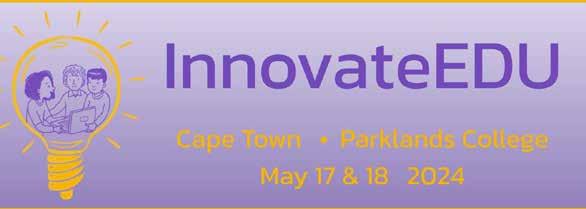
Over 500 delegates from 120 schools gathered for a two-day conference about blending education and technology, sponsored by Acer Africa and Acer for Education.
Johannesburg (SA), 13 June 2024: Our fast-changing world poses interesting opportunities and challenges to educators and their learners. In an age when phones produce any answer, and artificial intelligence writes essays, how do teachers and schools provide the best and most impactful education? How can they help their students realise their dreams and prepare for future jobs in science, technology, engineering, art, and maths (STEAM)?

InnovateEDU, a 2-day professional development conference, gathered instructors from across South Africa to explore the future of STEAM education.
The event, hosted in Cape Town on May 17th and 18th 2024 by Cloud Education Solutions (CloudEDU), drew a remarkable assembly of experts and educators committed to advancing STEAM education. Acer For Education sponsored the conference, using the opportunity to understand what educators think about, want to learn, and hope to achieve to prepare future generations.
“Education is very close to Acer’s purpose— when the company was founded in Taiwan, one of its original priorities was to support education, especially with an eye on how technology was shaping the future,” said Glenn Du Toit, Acer Africa’s director. “Today, South Africa is in a very similar place, a young nation that faces an uncertain future with fast-changing technologies.
Acer for Education supports InnovateEDU because we believe in the transformative power of STEAM education and that it’s important to support our educators towards those goals. We’re here to share our expertise as technologists and listen and understand. Through these professional forums, everyone gains the best ways to enlighten their classrooms.”

The 2024 edition of InnovateEDU was once again hosted at Parklands College, a vibrant innovation and education hub. Educators gathered at the beautiful, lush venue to focus on practical learning and professional development. They attended talks and workshops presented by an exceptional roster of education experts, including international edtech expert Georgina Dean, renowned tech-savvy educational consultant Ken Shelton, and leader of the UK Google Educator Group Abid Patel.

Modern education faces the dual challenge of preparing learners for a technology-infused world while keeping pace with modern technology’s breakneck pace. Artificial intelligence is a perfect example: how can teachers incorporate AI tools into their lessons while presenting the topic critically and soberly to prepare how their students think of a future with AI? The conference tackled such topics through workshops exposing attendees to novel solutions.

Educators engaged with various topics: turning classrooms into collaborative learning hubs, problem-based e-learning and design thinking, and artificial intelligence’s impact on education are a few examples. They joined creative presentations such as dynamic instructional videos and LEGO education, expanding their tools, insights, and networks to provide better learning opportunities for their students.

Since technology is at the centre of InnovateEDU, Acer Africa used the opportunity to showcase its range of education Chromebooks.
These versatile, easy-to-manage, and secure devices are designed for modern education, combining reliability, consistent performance, and security with connectivity, affordability, and high-quality design that match the needs of modern classrooms and remote learning. Acer staff demonstrated the advantages of Chromebooks to the eager attendees, who could also test the devices and see what they offer.
Acer Chromebooks helped represent innovation at this very successful conference, where faculties experienced other technologies, such as virtual reality, robotics, and interactive lesson solutions. The feedback from over 500 educators representing 120 schools was overwhelmingly positive.

“You have to send your staff - they’re not going to be exposed to such a comprehensive and innovative conference anywhere,” said Meghan Jeppe from Wynberg Girls’ Junior School. “If you want your school to succeed, your teachers need to be there! The most inspiring professional development of the year!”

Caitlin Forrester from Star of the Sea Convent School agreed, “I would say that this conference alone is enough professional development to last teachers a year! I am leaving with so many tools to experiment with and use in my classroom. I would also like to spread some of the knowledge I’ve gained with my colleagues who couldn’t attend.”
InnovateEdu 2024 was a platform for educators to learn, connect, network, and be inspired by the possibilities of technology at their schools. Delegates returned to their schools full of new skills, ideas, and inspiration to bring STEAM alive for their learners.
Acer Africa and Acer for Education are honoured to have been part of this extraordinary event, and look forward to InnovateEdu 2025.
Technology doesn’t stand still, nor do educators—and working together, we can shape learners’ minds so they can make the most of tomorrow.

Participants in Buffalo City township’s Kutlwanong Centre for Maths, Science and Technology’s after-school tuition programme honoured at East London awards ceremony

Johannesburg, 24 June 2024 – In a remarkable display of dedication and resilience, learners benefiting from an established mathematics and physical sciences programme in Mdantsane township near East London overcame years of pandemic-induced disruption to pass matric with distinction at the end of 2023.
For all but one of their five high school years, the 90 matric learners participating in the Kutlwanong Centre for Maths, Science and Technology’s Promaths after-school tuition programme endured trimmed curriculums that limited the knowledge required for subject choices, a dire lack of exposure to standardised assessments and exams, and constant amendments to assessment requirements.
Despite all these challenges, notably occurring against the backdrop of myriad challenges that impact South Africa’s second-largest township, the Kutlwanong centre’s 2023 matric cohort excelled. Topping the list was Ulwazi High School’s Angesisa Sithole, who

achieved 98% for mathematics and 93% for physical sciences, giving her a 96% average for these two subjects. In her overall NSC finals, she recorded seven distinctions.
Hot on her heels in second place was Othandwayo Ngumbela (92% average) and Iviwe Sontlaba (91% average).
The programme’s top Grade 11 performer was Khuseleka Nanto, who earned a 92% aggregate for mathematics and science, while the leading learner in Grade 10 was Asanda Mhlom (89% aggregate).
These and other exceptional students from Grades 10 to 12 were celebrated at a special awards ceremony at the Southern Sun Hemingways Hotel in East London on Friday 21 June 2024.
Thousands of learners have passed through the Promaths programme since the Kutlwanong centre was founded 18 years ago. Aside from the quality and commitment of teachers, its success is attributable to private funders like the Datatec Educational and Technology Foundation which has supported the programme for the past 14 years.


Mr Tumelo Mabitsela, CEO of Kutlwanong, & Ms Maya Makanjee, Chair of the Datatec Board and the Datatec Education & Technology Foundation
Maya Makanjee, Chair of the Datatec Board and the Datatec Foundation, says investing in organisations like Kutlwanong is key to unlocking the mathematics and science potential in learners to take South Africa forward in terms of growth and economic development.

Mastering the STEM (science, technology, engineering and maths) subjects is a must in the age in which we live. We cannot afford to be left behind as the world develops and embraces new technologies on an unprecedented scale, so for us to be able to support these learners who represent the future of our country is aligned to Datatec values,” Makanjee says.
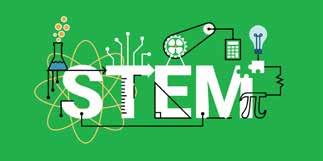
For the 2023 school year, intensive intervention programmes were put in place during the winter and spring holidays to assist all learners performing below an average of 50% in mathematics and physical sciences.
Additional measured included an “extended-hour programme” online on Fridays and face-to-face sessions on Saturdays and Sundays; referrals to websites/online platforms with curriculum and assessment material for various subjects; WhatsApp groups between teachers and between teachers and learners; videos with lesson recordings made available on the Promaths online platform and catch-up and remedial sessions through online classes.
There was also implementation of midyear and preparatory examinations to expose and prepare learners for the provincial preliminary exams in September and the end-of-year National Senior Certificate (NSC) examinations.

As a mark of the impact made in 2023, in the space of only two years the general baseline pass rate for mathematics among the matric cohort grew from 62% in 2021 (Grade 10) to 100% in 2023. The pass rate increase for physical science moved from 63% in 2021 to 100% in the National Senior Certificate final exam.
Yet this was only a small part of the programme’s success.
In their matric finals, almost a third of Mdantsane’s Promaths learners (29%) achieved 80% and above for maths, while the majority (71%) scored 60% and above. Again, the results for physical science were similar. Here, 24% of the 90 learners achieved 80% and above, while the majority (72%) recorded 60% and above.
90% of Promaths matrics earned Bachelor’s passes, while the remainder were able to study at tertiary diploma level.
“Despite the difficulties created by the pandemic, the evidence points to the resilience in the Promaths programme in the area that matters most; namely, learning outcomes over the years,” says Tumelo Mabitsela, CEO for Kutlwanong.
“More Promaths learners are achieving higher-level Grade 12 outcomes which are considered sufficient by universities for entry into specific university programmes.”


All content provided by Transform Marketing: https://transformmarketing.co.za www.datatec.com Tel: +27 (0)11 233 1000,


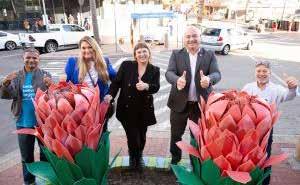
Two striking Waste to Art Protea sculptures were recently installed on the corner of Blackenberg Street and Cross Street. These sculptures, crafted from recycled materials, symbolise the power of community engagement and sustainable practices to breathe new life into urban spaces.
As part of the ongoing commitment to transform Bellville into a vibrant, sustainable community hub, the better. bellville. together. placemaking initiative, which is funded by the City of Cape Town, proudly unveils its latest addition to Bellville’s public art growing collection.


Since its launch in February 2023, the better. bellville. together. initiative has made significant strides in driving economic growth, fostering community cohesion, and promoting environmental sustainability.
Inspired by the progress, the Protea Waste to Art sculptures were born from the bins that were removed and replaced by the new better. bellville. together. separation at source bin stations at the Bellville Public Transport Interchange (PTI), showcasing the transformative potential of recycling and beautification of urban space in communities such as Bellville.
Alex Jongens, the better. bellville. together. beautification project lead, remarks, “From rubbish to beauty, we can change anything with education, action, and community involvement. These Proteas are a gift to the people of Bellville to celebrate this.”
The selection of Cross Street as the sculpture’s home was deliberate, given its status as a vital pedestrian route connecting the PTI to various destinations in Bellville.
Situated in a prominent planter box, these sculptures serve as not only aesthetically pleasing landmarks but also as conversation starters and educational tools.
They complement other elements introduced by the initiative, such as the Good Morning Sunshine mural and other gardens, enhancing the street’s overall ambiance.


Monque Fagan Junk, a new a local artist well-recognised for her work transforming waste to art says, “We were inspired by the successes of the waste diverted from landfills by the better. bellville. together. waste initiative, which included 15.1 tonnes of recyclables and 6.1 tonnes of food scraps and organic waste.

A staggering 54.3 tonnes of organic waste has been diverted from 26 local businesses, 18.5 tonnes of garden material dropped off from the CBD, and a whopping 15.2 tonnes of compost has been made.
We were encouraged to repurpose the waste bins which were replaced by the new separation at source bin stations. We designed and crafted these Proteas as a gift to the community of Bellville to celebrate this transformation in consciousness around waste.
These old bins, which served us well in the past, were turned into gorgeous flowers using the national flower - the Lotus of the Cape. From waste to beauty, we can change anything with education, action and community involvement.”

The Protea theme pays homage to the region’s rich natural heritage, particularly the Sand Fynbos which is endemic to the Bellville area.
By repurposing discarded materials into art inspired by indigenous flora, the sculptures offer a poignant reminder of the interconnectedness between urban spaces and the wider environment.

“These beautiful sculptures are more than mere adornments; they represent a commitment to sustainability and creativity.
Their presence enriches the Bellville community by providing an alternative form of public art, sparking curiosity, and encouraging reflection on waste and consumption habits,” adds Jongens.
Wanting to know more? look here: www.bettertogether.africa

By Roland Innes, Group CEO at DYNA Training and Leigh-Ann Revill, CEO and Principal at Chartall Business College

The South African Quality Council for Trades and Occupations (QCTO) offers a valuable foundation for the development of job-specific skills, standing as an important institution in shaping workforce readiness and competence. While industry-specific qualifications are undeniably vital, the dialogue surrounding the integration of soft skills within the QCTO framework is gaining momentum.
In the context of QCTO qualifications, it is imperative for industry to get involved in shaping the future of skills development (particularly the socalled ‘soft’ skills) in a manner that is universally portable between occupations to ensure a workforce that is well-rounded and equipped for change.
The QCTO will likely excel at providing qualifications tailored to specific job roles. This targeted approach ensures graduates possess the techni-
cal expertise needed to excel in their chosen field. However, success in the workplace hinges on more than just technical knowledge.
Soft skills encompass a range of interpersonal and personal qualities, including people management, leadership, emotional intelligence (EQ), communication and teamwork. These skills are fundamental for effective collaboration, problem-solving, and driving high-performance teams. An employee with exceptional technical skills but lacking soft skills is likely to struggle to motivate colleagues, manage conflict, or communicate effectively with clients, which has led to an oft-quoted industry saying, “soft skills are hard skills.”
While the QCTO qualifications prioritise technical skills, there is room for incorporating soft skills development. Although still under development, the Occupational Qualifications Sub-Framework can address this need through skills programmes.

The incorporation of soft skills can play an instrumental role in bridging the gap between theoretical knowledge and real-world job requirements. While QCTO qualifications offer a solid foundation in technical expertise, the complementary inclusion of soft skills ensures that individuals are holistically equipped to navigate complex workplace dynamics, lead teams effectively, and adapt to evolving professional landscapes.
One anticipated avenue of integration for soft skills into the QCTO sub-framework is through skills programmes. These programmes must be designed to address specific areas such as leadership, emotional intelligence, and team dynamics, and serve as a flexible tool for enhancing the skill set of individuals across various occupations. Most importantly, these programmes must be designed with portability in mind, to deliver the versatility necessary to cater to diverse industry needs and job roles.

As such, we must reframe our understanding of skills development to acknowledge the fundamental nature of soft skills and emphasise their relevance across all occupational domains. By positioning soft skills as essential components of workforce readiness, industry stakeholders, such as employers and skills development providers can advocate for their inclusion in both full qualifications and skills programmes within the QCTO sub-framework.

The onus for soft skills development cannot lie solely with the QCTO. Countries with thriving skills development systems often share a common thread: high levels of involvement from employers, learners, industry stakeholders and regulatory bodies like the QCTO. This collaborative approach ensures that qualifications and skills programmes cater to the evolving needs of the workforce.
Here, employers, training facilitators and individuals can play a critical role in advocating for the inclusion of soft skills within qualifications and skills programmes. Employers can further contribute by analysing their workforce needs and identifying areas where soft skills development would significantly benefit their organisations.
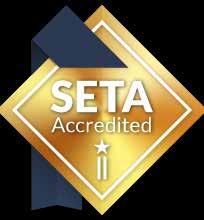
They must engage with SETAs (Sector Education Training Authorities) and support the development and implementation of relevant skills programmes.
Where existing qualifications lack essential soft skills elements, it will be necessary to work with industry bodies to advocate for changes to amend these qualifications and make them more suitable to meeting industry requirements.
Professional bodies can offer valuable insights and support in developing essential skills programmes, which is important given that a strong foundation in soft skills is fundamental in fostering a diverse and inclusive work environment.
The importance of integrating soft skills within the QCTO sub-framework cannot be overlooked in the pursuit of ensuring workforce readiness and adaptability. As industry dynamics continue to evolve, the demand for individuals equipped with a blend of technical expertise and soft skills will only intensify.

By actively engaging with regulatory bodies, advocating for the inclusion of soft skills, and fostering collaboration across stakeholders, industries can shape a future where qualifications align seamlessly with the demands of the modern workplace.

Bioinformatics, though relatively new compared to biochemistry and microbiology, is revolutionising the analysis of large biological datasets using cutting-edge computer technology. To honour its importance, Rhodes University has renamed its Department of Biochemistry and Microbiology to include Bioinformatics.

This vibrant bioinformatics field intertwines biological sciences and computer science, offering a broad range of applications from genome sequencing to drug discovery. Its interdisciplinary nature not only develops innovative methods and software tools for biologists but also fuels a global surge in bioinformatics research and development.
In 2016, the field’s importance was highlighted by a statistic: a third of the 20 most cited papers in the previous 20 years were in bioinformatics. As a result, bioinformatics graduates are highly sought after in various industries, making it a popular choice among Rhodes University students.
At Rhodes University, the bioinformatics journey began in February 2010 with the establishment of a small laboratory for postgraduate students, which was repurposed from a storage space and named the Rhodes University Bioinformatics (RUBi) Research Laboratory. By 2013, RUBi had evolved into a full-fledged research unit. Now in its 15th year, coinciding
with Rhodes University’s bidecacentennial anniversary, RUBi’s remarkable achievements prompted renaming the Department of Biochemistry and Microbiology to the Department of Biochemistry, Microbiology, and Bioinformatics. This name change distinguishes Rhodes University as the only institution in South Africa with bioinformatics in its department name, providing unique opportunities for attracting postgraduate students.
The bioinformatics research focus at Rhodes University is centred on drug research and development, tackling challenges such as drug resistance and toxicity at the atomic level. Projects range from discovering new drug compounds for various diseases to understanding drug metabolism through pharmacogenomics.
These endeavours are supported by prestigious funding agencies, including Novartis, GlaxoSmithKline, the South African Medical Research Council (R3,347,999), the Bill & Melinda Gates Foundation, Malaria Medicine Venture, African Academy of Sciences ($100,000), and the Novo Nordisk Foundation (€412,851.34).
Under the leadership of Professor Özlem Tastan Bishop, Director of RUBi, bioinformatics has made significant research contributions to the Department. A dynamic one-year Master’s degree in Bioinformatics is offered, complete with coursework, and a rigorous PhD programme by research thesis. RUBi has proudly graduated 25 PhD and 52 MSc students, many of whom have gone on to become academic staff in various African countries or to pursue careers in the pharmaceutical industry.

The creation of the Department of Biochemistry, Microbiology, and Bioinformatics marks a significant milestone in Rhodes University’s 120-year history of academic excellence. Despite its small size and rural location, the University continues to push the boundaries of research and innovation, solidifying its reputation as a hub for world-class, cutting-edge research.
The National Student Financial Aid Scheme (NSFAS) is a government entity under the Department of Higher Education and Training (DHET)
Supports access to and success in, higher education and training for students from poor and working-class families who would otherwise not be able to afford the cost of studies at a public university or Technical and Vocational Education and Training (TVET) college.
•Provides financial aid to eligible students who are studying or plan to study at any of the 50 TVET colleges or the 26 public universities in South Africa
•Identifies students who qualify for the bursary
•Provides bursaries to students
• All South African citizens
• All SASSA grant recipients
• Applicants whose combined household income is not more than R350 000 per annum
• Persons with disabilities with a combined household income of not more than R600 000 per annum
• Students who started studying at a university before 2018 and whose household income is not more than R122 000 per annum
What does the NSFAS bursary cover?
• Registration
• Tuition
• Book allowance
• Accommodation allowance
• Transport allowance
• Food allowance
• Personal care allowance
Does the NSFAS bursary offer any additional support for students with disabilities?
Yes, NSFAS further supports funded students with disabilities through an additional allowance that covers:
• Medical assessments
• Assistive devices
• Human support to cover for the cost of a caregiver, guide dog, scribe or tutor.
How, where and when can one apply for NSFAS?
The 2021 application season will be communicated through media, social media and the NSFAS website www.nsfas.org.za.
Applications are submitted online through the NSFAS website: www.nsfas.org.za
To apply for NSFAS funding students must have a registered myNSFAS account If you plan to study in 2021 and require support from NSFAS, you may open your myNSFAS account now to keep updated with the latest funding information.
Connect with us using the following channels:
NSFAS Connect: www.nsfas.org.za and log into your myNSFAS account
NSFAS Connect gives you access to quick facts and frequently asked questions. Applicants and students can also submit and track a query for further assistance.

We may believe that focus on ecological issues only started recently. Not so. There were plenty of action even back in the ‘80s.
Some of these early actions were rather spectacular and the people involved very much so as well.
I found this on CNN and it was something I have never heard of. The below is all inspired from the CNN article.

First the person: Agnes Denes. She is now 92 and still very much active in all things ecological. She is living in New York, but born in Hungary.
Back in 1982 she did realise that something has to be done unless we want to die in pollution and garbage.
Always very practical, she found a plot in Battery Park in Manhattan. It was the last un-developed plot in the entire New York and was actually a landfill.
Together with a set of volunteers they cleaned it up. And planted WHEAT. They created a little piece of farmland with a wheatfield in the middle of New York. In spitting distance from the twin towers.

This little piece of land became the first practical eco-protest and nobody could faint ignorance. After all, it was smack in your face and visible from all the high-risers.
The wheatfield was tended (by hand) through the summer and duly harvested.
This was all back in 1982. Agnes Denes has never stopped and her latest project is exactly along the lines of her first eco-protest.
Look at her first protest:






“The original ‘Wheatfield’ was a confrontation of people who run the world. I wanted leaders to rethink the use of land and the use of humanity,” she added. “This ‘Wheatfield’ is a totally different idea — to bring people together.”

“Denes and Tinworks are doing so in collaboration with Bozeman residents, students and small businesses. Last fall, around 50 volunteers cleaned up the site, a lot owned by Tinworks, and planted the winter wheat led by a local fifth-generation farmer, Kenny Van Dyke.
They will tend the wheat by hand all summer until September, when students from Montana State University’s plant sciences department, which is also a partner on the project, will harvest the crop. Wheat will also be sprouting all around the city in solidarity with the project, thanks to some 200 packets of seeds Tinworks distributed to community members.
Come fall, local bakeries will use the resulting flour milled from the grain in their products, and will help keep regional food banks stocked, according to Tinworks director Jenny Moore”

Agnes herself calls her many projects ‘Ecological Art’. For sure these projects are on a grand scale.

“Tree Mountain involved planting 11,000 trees in a spiral formation in a gravel pit near Ylojarvi, Finland, in the 1990s.
Embodying her fascination with mathematics in nature, structure and beauty, the form is based on the spiral of sunflower seeds, which follow the golden ratio.
Each tree belongs to the person who planted it, an assertion of our shared responsibility over the stewardship of Earth.
“They own it. The only thing is, they can’t sell it — no money is ever involved, but they can leave it to their children and their children’s children in perpetuity,” Denes explained. “So it becomes a family. The forest becomes a family connected by a tree.”
“But though Denes has been extraordinarily prolific in her concepts and proposals — many of her some 200 ideas have been published in “The Human Argument” — she has only realized a fraction of them in her lifetime.
“People know me finally — (but) after working 60 years or 70 years, they know me on three or four projects. That’s it,” she said. “Can you imagine if I could have realized 20 or 30?”
What an extraordinary person!



The National Science and Technology Forum (NSTF) is excited to launch the latest version of STEMulator, a free virtual platform designed to spark interest in Science, Technology, Engineering, and Mathematics (STEM) among learners. To celebrate National Youth Day on the 16th of June 2024, the NSTF is gifting this innovative resource to South African youth, allowing students, parents, educators, and communities a unique opportunity to explore the world of STEM.
Dive into the World of STEM at stemulator.org STEMulator.org allows learners to virtually explore a wide range of STEM fields, from engineering marvels to scientific phenomena. With just a click, students can dive into the inner workings of a car engine, understand the machinery behind agricultural harvesting, or uncover the chemistry of everyday items like bread. This immersive experience provides a behind-the-scenes view of STEM careers and helps learners connect their interests to real-world applications.

“The platform is designed to make learning fun and engaging,” says Richard Gundersen, Chief Instigator at STEMulator. “Learners can interact with animated objects and explore clickable areas to gain deeper insights into various STEM concepts. This dynamic approach encourages curiosity and perseverance in subjects like math and science, fostering a lifelong love for learning.”

Safe and Educational Environment
STEMulator.org offers a secure online space where children can explore STEM topics safely. Parents can rest assured that their children are engaging with high-quality, educational content that supports their academic growth and future career aspirations.
Supporting your child’s interest in STEM is crucial. STEMulator provides valuable career guidance, helping students understand the pathways available in STEM fields. This resource equips parents with the tools to guide their children’s educational choices and nurture their passions.
STEMulator is an excellent supplement for traditional teaching methods. It enhances classroom learning by providing interactive, curriculum-aligned content that brings STEM subjects to life. Educators can integrate STEMulator into their lesson plans, using it to reinforce concepts taught in math and science classes.
Additionally, the platform offers extensive resources and support for educators. Teacher guidance notes and classroom activities are available to help seamlessly incorporate STEMulator into daily teaching practices. By adopting this initiative, schools can enrich their STEM education offerings and inspire students to pursue STEM-related careers.


Implementing STEMulator in your school can help attract and retain students with a keen interest in STEM. “This interactive tool not only supports the existing curriculum but also provides an engaging way for students to explore potential career paths, ultimately fostering a robust STEM talent pipeline”, explains Gundersen.
STEMulator, available on stand-alone memory-sticks, is particularly beneficial for schools in rural and underprivileged communities. It promotes STEM literacy and accessibility, ensuring that all students, regardless of their circumstances, have the opportunity to explore and excel in STEM fields. This initiative helps bridge the educational gap and prepares students for a technology-driven future.
Communities play a vital role in supporting STEM education. By encouraging the use of STEMulator, community members can help inspire youth to explore STEM fields and understand their significance in everyday life. This platform highlights career opportunities in areas such as agriculture, electrification, and solar energy, which can directly benefit the community.

The STEMulator initiative has the potential to inspire a new generation of STEM professionals. By fostering interest in these fields, communities can ensure a steady supply of skilled individuals who can contribute to local development and innovation.
• Virtual landscape: Explore at leisure, all things STEM, from pumping human hearts to jet turbines, microbes to mountains, nature to agriculture.
• Virtual school: The school features science and biology classrooms, and soon to include maths content with curriculum-aligned content and teacher guidance notes.
• Career guidance: STEMulator helps learners connect their interests to potential careers, providing valuable insights into career opportunities.
• Freely available and proudly South African: A key aspect of the STEMulator is its accessibility, ensuring that all learners, regardless of circumstances, can benefit from this innovative resource.
• Forever expanding: New material is being added continuously, with new sections such as mines and transport under construction.

Join Us in Shaping the Future of STEM Education
The NSTF envisions a future where every learner has access to STEMulator, empowering them to make informed subject and career choices. Whether they pursue a career in STEM or another field, STEMulator equips them with critical thinking and problem-solving skills essential for success. Visit STEMulator.org today and embark on a journey of discovery.

Music and dance is (sort of) intertwined, so this time we look at the most elegant, glamorous and exciting dancing of it all: ballroom dancing.
The dresses and the entire setup is just so enticing. But what does it consist of?
There are several ‘standards’ in international dance competitions. This is of course linked to the different dances, so let us try to unravel this a bit by also providing some videos of it all (also because I would love to dance the night away in a dress like those).
let it also be said: it requires hours on end in rehearsing and the dresses and the outfits aer not in-expensive.
Although the dancers might do the dresses themselves, it is still expensive. And then comes travelling from competition to competition!
Standard: Slow Waltz, Tango, Viennese Waltz, Slow Foxtrot, and Quickstep.
I think we all know the tango – just so fantastic
American standard and European standards might also have: Rumba, Cha-Cha, Jive and Pasodoble. There are even more but that suddenly depends on the competition and the country.








Rom-com set during the leadup to 1969’s Apollo 11 mission stars ScarJo as a marketing exec hired by NASA to stage a fake moon landing, and Channing Tatum as the launch director struggling to stop the real thing from descending into chaos.
Screening: 2 July 2024
the purple
Zachary Levi (Shazam!) plays Harold, who embarks on a magical mission with the help of his purple crayon that brings any drawing to life, in this family adventure from the director of Ferdinand, adapting the children’s book by Crockett Johnson.
Screening: 2 August 2024




July! So may things to do as well. The year is going fast.
Enjoy an insight into waht is ‘cooking’ in other parts of the world. All thanks to Wiki.

Marine Day also known as “Ocean Day” or “Sea Day”, is a public holiday in Japan usually celebrated on the third Monday in July. The purpose of the holiday is to give thanks for the ocean’s bounty and to consider the importance of the ocean to Japan as a maritime nation.
On this day, families may visit beaches such as Isshiki Beach in Hayama and swim, snorkel, surf, or dive. People may also participate in an event called ‘mud-ball throwing’. National aquariums also host special water-related events on this day
The date roughly coincides with the end of the rainy season in much of the Japanese mainland.


Friendship Day is a day in several countries for celebrating friendship. It was initially promoted by the greeting card industry; evidence from social networking sites shows a revival of interest in Friendship Day that may have grown with the spread of the internet, particularly in India, Bangladesh, and Malaysia.
Mobile phones, digital communication, and social media have contributed to popularize the custom.
The World Friendship Crusade has lobbied the United Nations for several years to recognize 30 July as World Friendship Day.
Finally, in 2011, the General Assembly of the United Nations decided to designate 30 July as the International Day of Friendship and proceeded to invite all the Member States to observe the International Day of Friendship per the culture and customs of their local, national and regional communities, including through education and public awareness-raising activities.

Hola MaHigh-School is YOUR magazine. That is why we would love to see students writing for students about student life and everything of importance to a student in any grade10-12 across the country.

What is required? That is easy:
You have to be in grade 10-12somewhere
Impeccable in your preferred language-and that might not be English. We try to be more than just English.
Passionate about your topic of choice - no dull articles here.
Do you get anything out of it?
Well, not money, sorrry. BUT if we publish your articles you will have:
Your bio in a commercial magazine A photo of yourself
You can put it all on your CV you can use us as a reference




My name is Rofhiwa and I love to write. I have used my skills to express my thoughts on international dealings of the world which have been published in Hola MaHigh-School. It has paid off, not only is my work printed for young people in the country to read, but it also contributed to me gettng a bursary from CNBC-Africa to do my post-graduate studies. Would be a lot harder to get by if I didn’t have a platform like Hola MaHigh-School.
We will be talking about Women’s Day (and month).
The truth is that there is still a lot more to be done. It is a work in progress and it is not just South Africa.
We will also utilise much more of the articles we are getting sent. These are extremely relevant and represent the best of thinking out there.
We can all learn and it is a good thing to learn from well-informed people.
There is a need for some ‘light’ entertainment. That will be conspiracies. I love these and I promise we will get to that as well.
Tech? my cell needs replacement - LOL. maybe we should look at that as well.
Until next time!




How long is 20 seconds?
Hum the first verse of our national anthem: Nkosi Sikelel’ iAfrika


